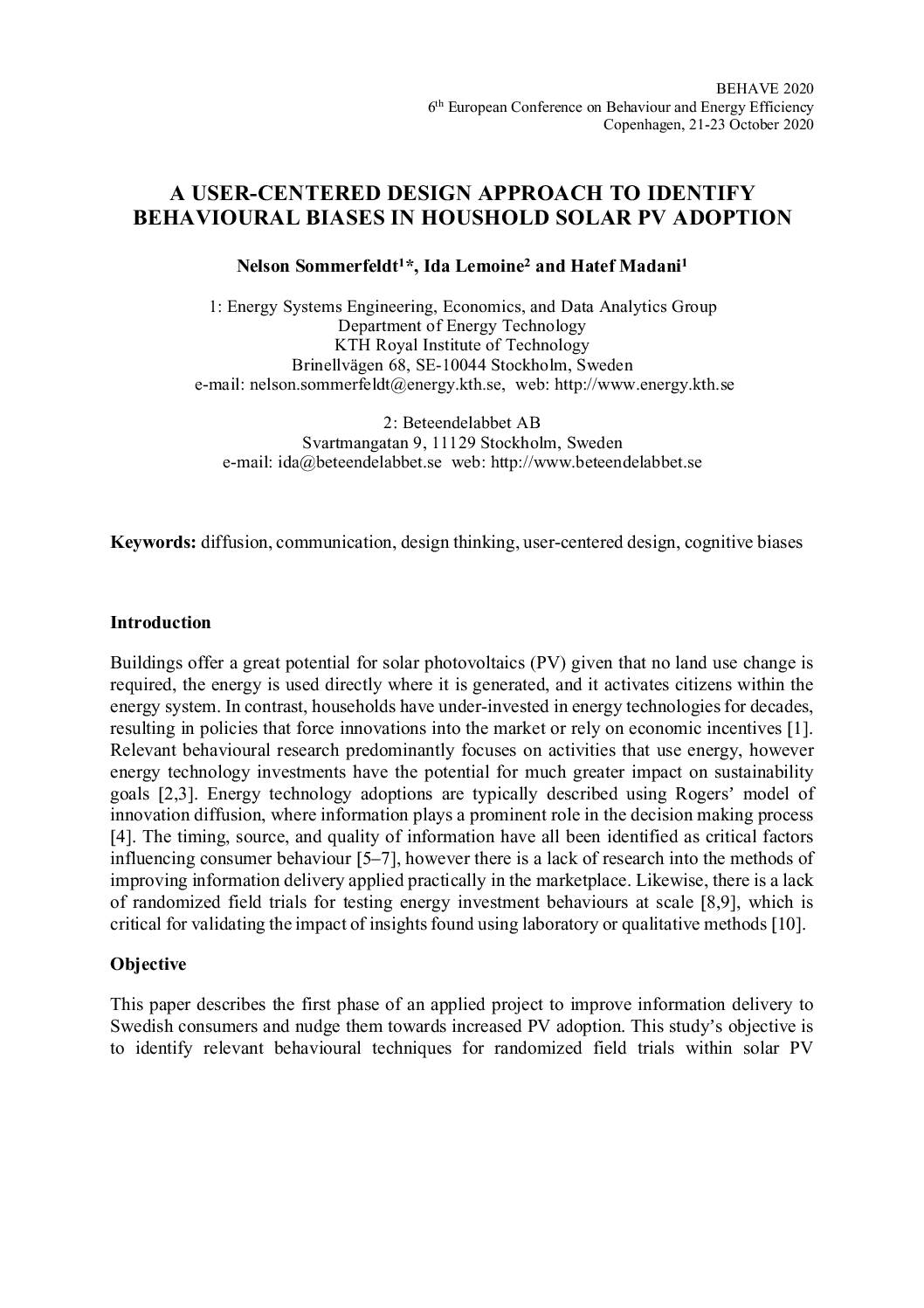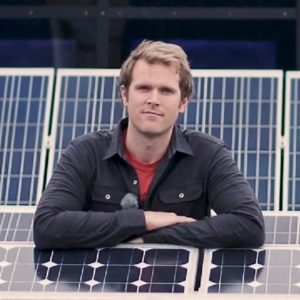Buildings offer a great potential for solar photovoltaics (PV) given that no land use change is required, the energy is used directly where it is generated, and it activates citizens within the energy system. In contrast, households have under-invested in energy technologies for decades,resulting in policies that force innovations into the market or rely on economic incentives.Relevant behavioural research predominantly focuses on activities that use energy, however energy technology investments have the potential for much greater impact on sustainability goals. Energy technology adoptions are typically described using Rogers’ model of innovation diffusion, where information plays a prominent role in the decision making process. The timing, source, and quality of information have all been identified as critical factors influencing consumer behaviour, however there is a lack of research into the methods of improving information delivery applied practically in the marketplace. Likewise, there is a lack of randomized field trials for testing energy investment behaviours at scale, which is critical for validating the impact of insights found using laboratory or qualitative methods.
Download sourceShare this

Sector: Renewables
Country / Region: Global
Tags: citizens, consumption behaviour, decision-making, energy, innovation, land use, land-use change, solar, solar photovoltaic, sustainabilityIn 1 user collection: Session 3b: Behaviour Interventions for the integration of Energy Efficiency and Renewable Energy
Knowledge Object: Publication / Report
Publishing year: 2020
Author: Nelson Sommerfeldt, Ida Lemoine, Hatef Madani
Content:

